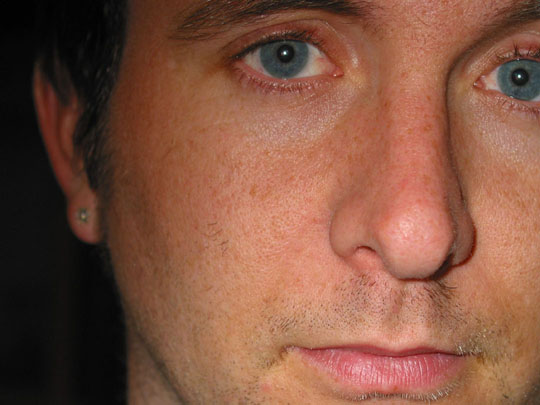
Graphic novelist and filmmaker Marjane Satrapi was a bit standoffish at the start of our recent interview at the Hotel Monaco in downtown Portland. But soon she unleashed her enthusiasm and discussed her creative process, her influences and some thoughts on queer culture.
Born into a liberal family in Iran in 1969, Satrapi witnessed a violent revolution and lived under an oppressive fundamentalist regime until her parents sent her to school in Austria in the early 1980s. She now lives in Paris, and has secured a spot in the pantheon of great graphic novelists with the Persepolis series that recounts her childhood in Tehran and her teen years in Europe.
The excellent film adaptation opens on Christmas Day in big cities, and in smaller locales in early 2008. Directed by Satrapi and comic artist Vincent Paronnaud, the film won a jury prize at the 2007 Cannes Film Festival, and it is France’s official entry for this year’s Best Foreign Language Film Oscar.
Here's an excerpt from my conversation with Marjane Satrapi:
Me: What were the major differences in your approach to writing the graphic novels and doing the film?
Marjane: Well when you write you work by yourself. You work all alone. With the film not only do you have to work with 100 people but you’re responsible for these people.
Me: When you wrote the graphic novels did you have a movie in mind?
Marjane: No, never.
Me: What influences did you draw on?
Marjane: My inspiration comes from everything. In the movie it was from F.W. Murnau [German Expressionist director of Nosferatu] to Martin Scorsese’s Goodfellas by use of the narration and the way the story is told.
Me: Are there any graphic novels that inspired you to go into this field?
Marjane: I read Maus by Art Spiegelman. I was just like everybody else. I thought comics were just for kids or adolescents or retarded adults. Then I read this book and I realized that it was a masterpiece. It frees you when you realize you can tell any story with comics.
Me: How often do you go back to Iran?
Marjane: I don’t go back.
Me: What’s your next project?
Marjane: I would really like to make another movie, and I would really like to write another book. But right now I am so empty. For me to be creative I have to have at least five hours for myself. Now with the promotion for the film I never have five hours.
Me: In your memoir you seem right at home with gay men.
Marjane: For me people are just people. I never think about who does what in their bed. If a gay guy is bad and mean he’s not my friend and I will not be nice to him just because he is gay. I have lots and lots of gay friends.
One of my favorite movie makers is John Waters. I love his stories and all the transvestites and the completely crazy words. Once I wrote about my favorite holiday movie for The New York Times and my favorite Christmas movie is Pink Flamingos I’m so fed up with all the sweetness that I need to see this movie to free myself of all of that.
Me: Do you think your outlook on gays is influenced by growing up in an oppressive culture?
Marjane: If you’re born in the U.S. in a very religious family you are growing up in an oppressive culture. You don’t need to be in Iran. It can be anywhere. I had the good luck to grow up in a very open minded family. They didn’t judge anybody. Anybody could do whatever they wanted. But people were judged if they were mean. If you don’t do anything bad to anybody I don’t know why there’s a problem.


0 Comments:
Post a Comment
<< Home